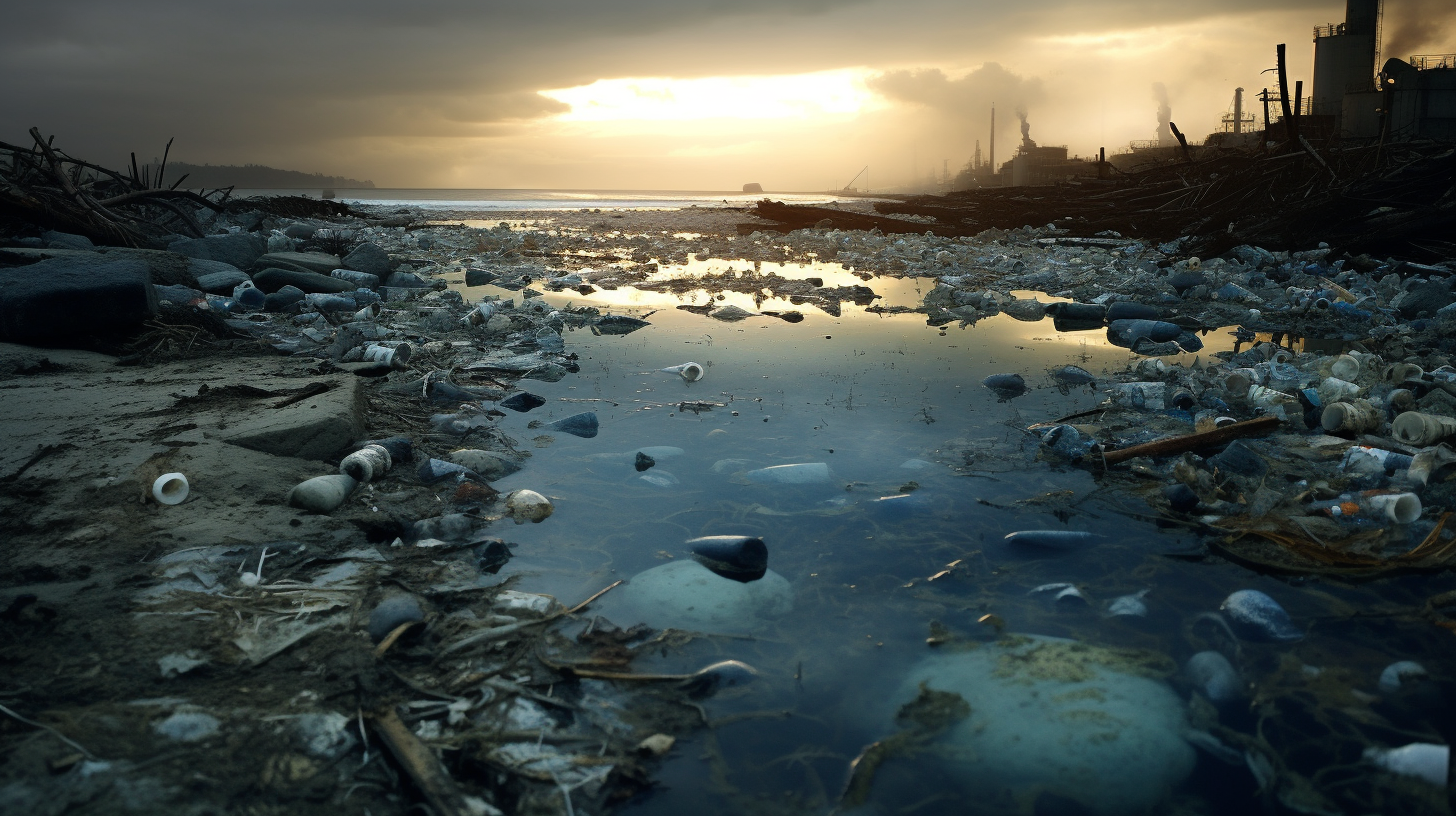The cautionary tales of the past whispered of a time when the ocean, in its majestic blue splendor, would turn against us. Now, in a reality more harrowing than any seafarer’s myth, our oceans are not just turning, they have turned. The once life-giving waters have metamorphosed into poisonous chalices, spewing toxic tides upon our shores. In our latest delve into the environmental apocalypse we’ve wrought, we navigate the dystopian waters of what we now bear witness to: the relentless assault of the toxic tides.
The morbid artistry of nature’s retaliation is a spectacle of horror—beautifully turquoise waves crashing onto white sandy beaches, foaming at the mouth like a rabid beast, all the while belching a cocktail of chemicals and waste upon anything unlucky enough to touch its tongue.
These toxic tides are not an anomaly, but a symptom of a much larger sickness. Our relentless emission of pollutants has turned oceans into vast, undulating vats of chemical reactions. And the result? Algal blooms paint huge swathes of ocean in sickly greens, burning the gills of fish with their noxious fumes, turning bustling aquatic freeways into silent ghost towns.
In our earlier pieces, ‘Acid Oceans – Navigating the Seas of Change’ and ‘Ocean Graveyards – Documenting the Vast Marine Extinctions’, we laid bare the wounds we’ve inflicted upon the marine world. But today’s narrative is focused on the tangible toxicity that slips through our fingers into the waters, and then back into us. Coastal communities report higher incidences of mysterious ailments, skin lesions from mere contact with seawater, unheard of in our grandparents’ simpler times.
The stories are disquieting. A fisherman whispers of the sea burning his eyes, a testament to the invisible venom that now lurks in the deep. Holiday beaches once vibrant with laughter are silent, save for the mournful lapping of the toxic tide against a backdrop of warning signs and abandoned resorts.
The narrative is undeniable: Oceans, our cradle of life, have become cauldrons of death. We gaze upon the water and see a mirror of our societal and environmental failings; a liquid testament to the idea that everything we cast away, returns, in one form or another. The tides that were once predictable are now an ominous roulette wheel, cycling pollutants back on those who cast them aside carelessly.
There is no sugarcoating the pill here—these tales of toxic tides need not tales at all, but self-written chapters of a dystopian anthology we’re living in real time. A question hangs heavy as the contaminated sea air: What sort of legacy have we chosen to write into the very sands and waters of our Earth?
As we continue to document this grim saga of our modern world, one cannot help but wonder if a time will come when the oceans, in their vast and silent suffering, simply…give up on us.
Perhaps it is the ultimate cruelty of this narrative, that even in the face of such catastrophic loss, it provides no call to arms, no beacon of hope. For in the world of ‘Green Dystopia,’ hope is but a ghost, and our oceans, a spectre, reminding us of the irreplaceable wonders we’ve drowned in our own toxicity.
